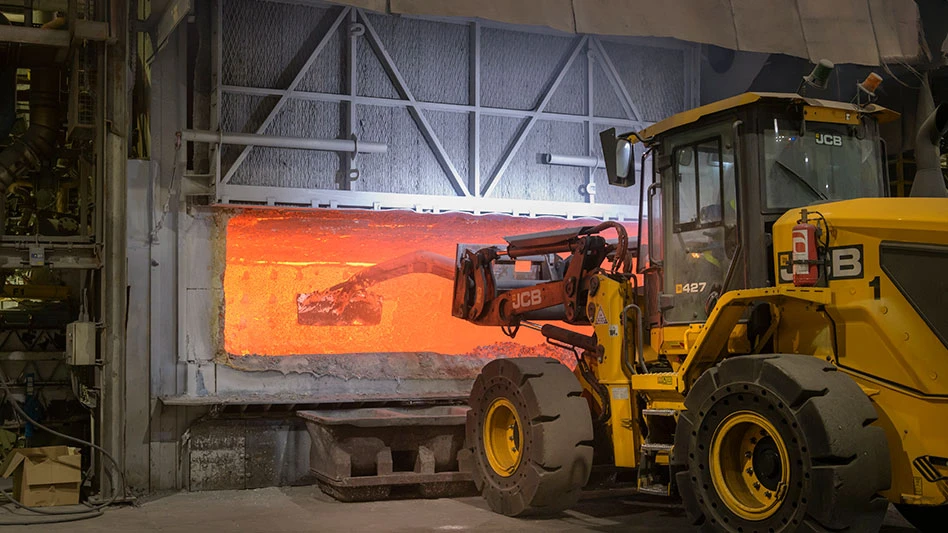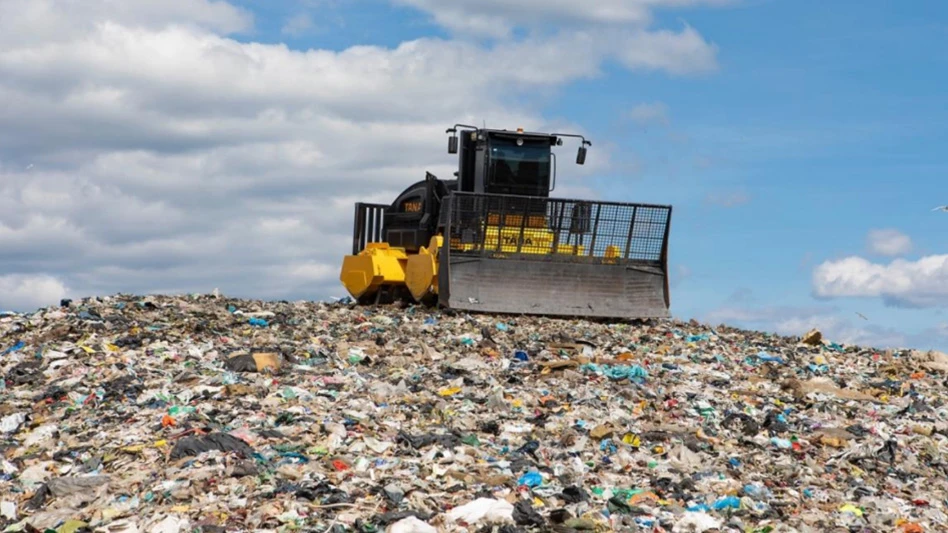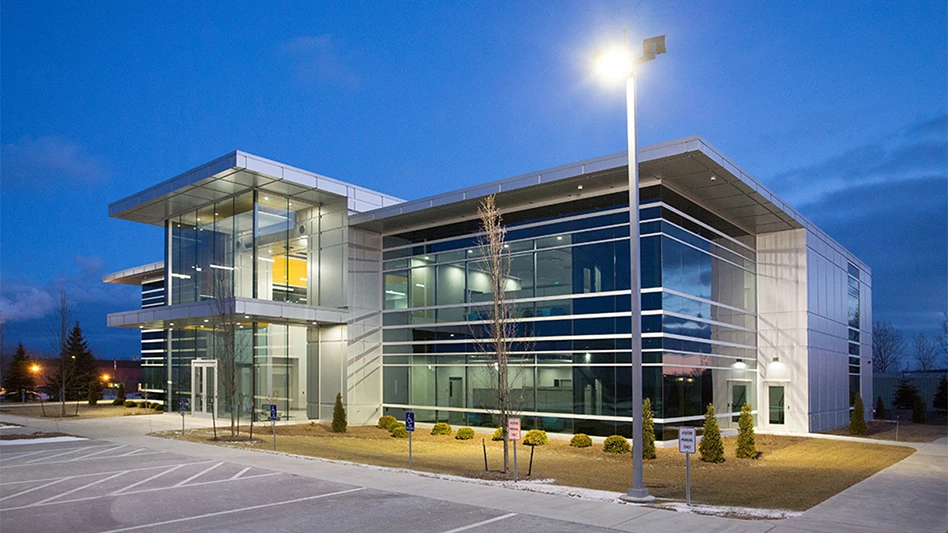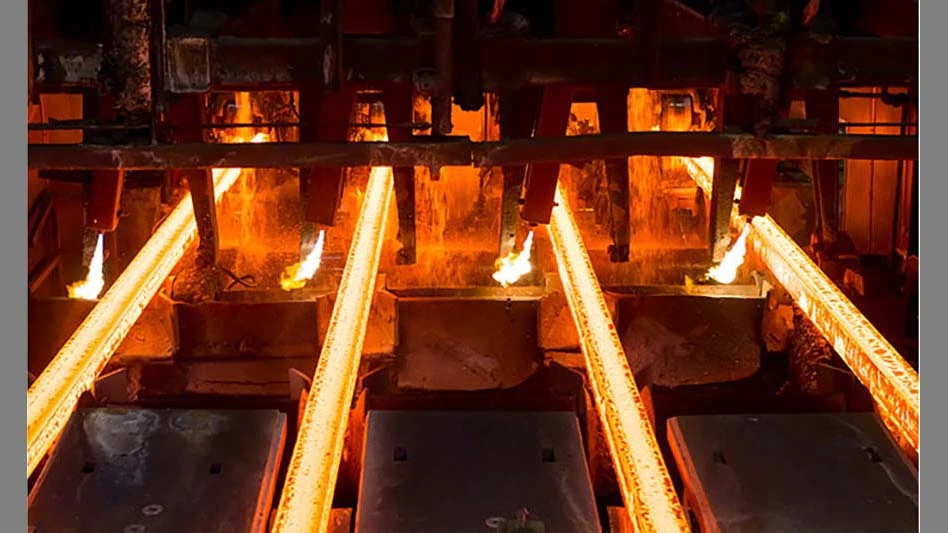
Photo by Brian Taylor.
A November 2020 announcement from Hamburg, Germany-based copper producer Aurubis AG and Lunen, Germany-based TSR Recycling GmbH & Co. KG could be interpreted in more than one way from observers of the nonferrous metals industry.
The November news involved the signing of a joint venture (JV) agreement between the two companies designed to merge the wire and cable processing activities of the Aurubis subsidiary known as Cablo Metall-Recycling und Handel GmbH and those of a TSR wire chopping site in Gelsenkirchen, Germany.
According to Aurubis Senior Communications Manager Malte Blombach, contacted by Recycling Today in mid-March, the transaction has not yet been finalized. Blombach says, “The transaction is currently reviewed by the antitrust authorities and we expect to close it by the end of April.”
On the one hand, the JV could be interpreted as a way for both companies to hedge their risk in the wire processing trade and the volatile copper pricing conditions that are part of that business sector.
Looked at another way, the new Cablo GmbH JV could allow the firms to share the cost and return on investment of any processing capacity if more wire and cable scrap becomes available in Europe if overseas buyers continue to back away from buying baled wire and cable.
As structured, TSR will hold a 60 percent stake in Cablo GmbH and manage the company from an operational perspective, while Aurubis will hold a 40 percent stake. At the time of the announcement, the two firms indicated all employees at the Aurubis wire processing site in Fehrbellin, Germany, and those at the TSR wire processing plant in Gelsenkirchen, Germany, would be part of the new venture.
Blombach says consolidating operations can present cost-saving opportunities, commenting, “The primary objective of the JV is to use the existing capacities of the partners and achieve synergies.”
She also points out, though, that as of now Cablo is actually expanding its wire processing capacity. “At the TSR site in Gelsenkirchen, a second production line is currently under construction and will extend already existing capacities,” she notes.
The Cablo site in Fehrbellin has been recycling copper and aluminum cable since 1949, according to Aurubis. While copper and aluminum chops may be the focus of its operations, the facility also fabricates plastic products made from cable insulation, says the firm.
The recycling outcome of wire and cable scrap with less than two-thirds (or so) metallic content remains a question in Europe and North America. For the past two decades or more, most such wire and cable scrap has been baled and shipped to Asia.
Initially, this was to China, but that nation no longer welcomes the material. More recently, processing plants in Malaysia have been large volume buyers, but at least one government agency in that nation has drafted guidelines that call into question the future of Malaysia as a destination.
When the JV was announced in November, Aurubis CEO Roland Harings made a direct reference to the notion that the export options are likely to narrow. “Sustainably closing the loop is Aurubis’ core business and area of growth,” stated Harings. “With the joint venture with TSR, we will boost the volume of input materials and create solutions for the plastic materials that accumulate during recycling, which pose a substantial challenge in the recycling of cable [scrap].”
Blombach also points to environmental compliance as a critical factor in how developed nations must handle all grades of wire and cable scrap. Inbound “cable volumes will be processed in Europe under high environmental standards and their export will be avoided,” she says of one of the objectives of the Cablo joint venture.
Harings says boosting those inbound volumes can be one of the benefits of the JV. “The separate recycling strengths of both partners will complement each other perfectly in the joint venture: TSR contributes a broad network of branches that collect the materials, as well as its existing logistics and its preprocessing expertise; Aurubis brings along extensive metallurgical processing knowledge for a wide variety of recycling raw materials to recover different metals. Together, we will continue optimizing the recycling processes.”
Bernd Fleschenberg, chief operating officer of TSR, made similar comments in November about the respective strengths of both companies and also referred to the high-profile European Commission Green Deal effort. That collection of environmental mandates also could include significant funding opportunities.
“As a recycling company, we are committed to bringing the circular economy to life,” said Fleschenberg. “Our joint venture makes a crucial contribution to enhancing the circular economy—and serves as a role model for other material flows as well.”
Latest from Recycling Today
- GFL profits decrease from prior quarter
- HCT reports receptive market for upgrade kits
- Al-Jon veteran staff member announces retirement
- 2026 Circular Steel Summit: The supplier relationship
- Premier expands national rental fleet
- Amcor says Q2 performance in line with ’26 expectations
- Aduro Clean Technologies achieves operational milestone for NGP pilot plant
- USPP outlines ways to advance film and flexible packaging circularity





